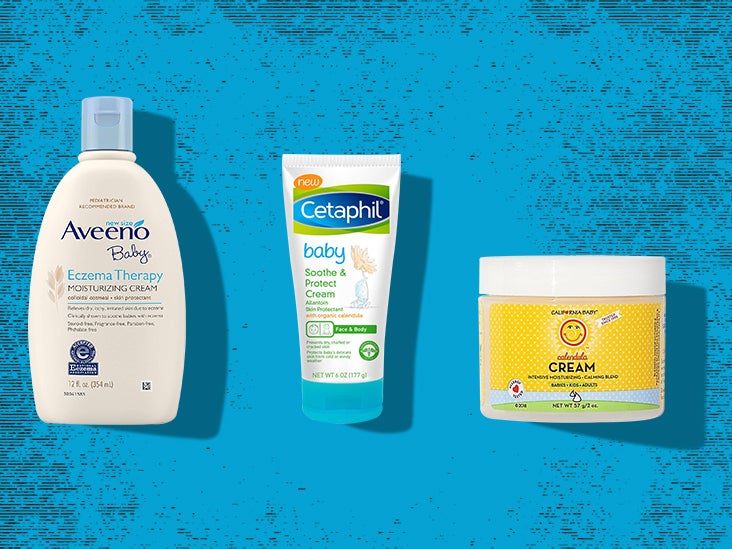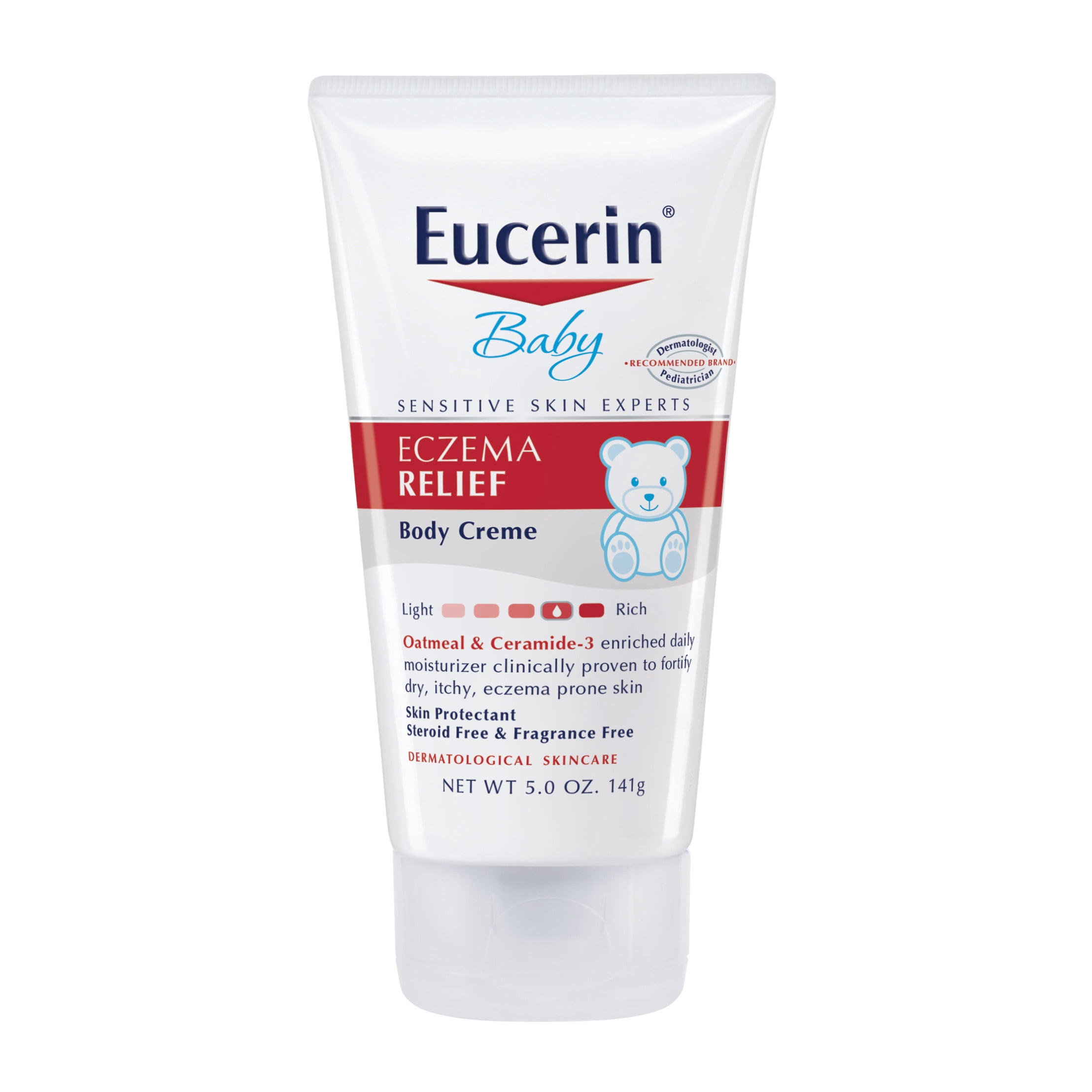

Skincare ProductsĮczema-triggering irritants like synthetic preservatives, sulfates, betaines, synthetic fragrances, petrochemicals, and other harsh chemicals are all-too prolific in products ranging from soaps and shampoos to detergents and disinfectants.
#BABY ECZEMA CREAM SKIN#
Similar to the gut-inflammation connection we see between eczema and foods, the link between skin inflammation and respiratory allergens warrants consideration in your investigative work. There’s a whole world of dust mites, pet dandruff, seasonal pollen, mold and microbes out there that can lead to eczema. Eliminating these types of food as much as possible is a good first step to a healthier food lifestyle for mom and baby. If you eat a lot of packaged foods with preservatives then you're adding a lot of chemical stress on your body and it will eventually wear down and burn out. Those preservatives cause impurities that your body then needs to detox and eliminate. Processed food has to be shelf-stable for years which requires preservatives. Jessica’s Advice: “If it comes in a bag or box, don’t eat it.” Keeping a food diary for mom might provide useful insights, but we won’t lie - this can be a long and challenging process, especially given the reality that reactions to food can change when either mom or baby’s environment changes. If your baby isn’t eating solid foods yet, they could still be ingesting them through breastfeeding.

“We do know that in kids and babies, food allergies like eggs, soy, milk, shellfish, peanuts are 30-50% of the reason for their eczema. Tip: We suggest getting an allergy test or keeping a food diary to identify possible food allergy triggers. Common food allergens like eggs, soy, nuts, dairy and shellfish are linked to as many as 50% of eczema cases in kids. Our gut is intimately connected to how (and how much) inflammation shows up in our bodies. When your baby has an eczema flare-up, cross-reference the below list of triggers for possible clues to its underlying cause. If you have one condition, research suggests you may be more prone to the others. Asthma, allergies and eczema are also all linked to inflammation. If a parent is dermatitis-prone, their children are more likely to develop eczema. But food, allergens, skincare products and stress (yes, even in babies) can play a big role in eczema flare-ups. Or, skip ahead to our best creams for baby eczema.Įczema in babies’ faces, especially if it’s on the cheeks, likely has a lot to do with drool (wah, wah). Effectively managing eczema in babies faces means digging for the root cause(s) underlying the condition, which we detail below. Atopic refers to conditions related to the immune system and dermatitis refers to inflammation in the skin. Inflammatory responses are our bodies’ way of sending us an SOS alert that something deeper is going on internally.Ītopic dermatitis is the most common type of eczema, affecting 13% of all children under the age of 18 in the United States. skin).Įczema is an umbrella term for an inflammatory response that surfaces as a skin rash. Severe cases can blister or become infected and form a yellow crust, a traumatic experience for babies and parents.

To date, there is no cure for the patches of dry, itchy, rough and sometimes oozing (or “weeping”) skin that can crack, especially when scratched or rubbed - which babies do, especially at night. Happy California Baby customer What is eczema, exactly?Įczema is a mystery. South Georgia & South Sandwich Islands (GBP £)


 0 kommentar(er)
0 kommentar(er)
